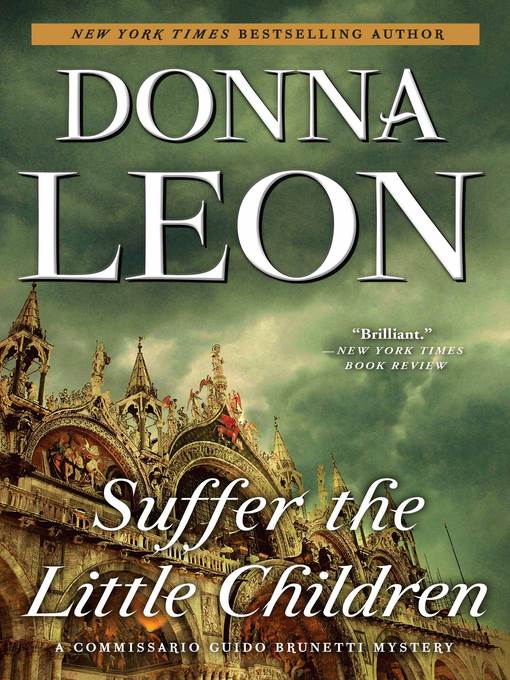
Suffer the Little Children
A Commissario Guido Brunetti Mystery, Book 16
کتاب های مرتبط
- اطلاعات
- نقد و بررسی
- دیدگاه کاربران
نقد و بررسی

March 26, 2007
In Leon's 16th Commissario Guido Brunetti mystery, at once astringent yet lyrical, two rival police forces—Brunetti and his Venetian colleagues and the carabinieri—are both interested in a doctor who illegally adopts an Albanian infant. When three carabinieri break into the doctor's apartment and seize the child at night, they injure the doctor, leaving him mute. Much of the early action takes place in a hospital, and because Venetian hospitals appear only slightly less bureaucratic and Kafkaesque than their stateside counterparts, Leon's marvelous insights into Italian life, so sharp when she explores a military academy in Uniform Justice
or glassblowers in Through a Glass, Darkly
, aren't as fresh, sinister or compelling here. But once the IVs and bandages give way to vandalism at a pharmacy and the family secrets of a neo-Fascist plumbing tycoon, Leon regains her stride and the novel's last fifth is first-rate and masterful. Leon seldom delivers a "feel good" ending, choosing instead conclusions that are wise and inevitable while still being unsettling.

Starred review from February 15, 2007
Commissario Guido Brunetti of Venice does what it takes to solve a case, whether it's having his aristocratic father-in-law arrange a meeting with a powerful political figure or playing the part of a wealthy infertile man who'll do anything to get a baby. After the Carabinieri (Italy's military police) rouse a prominent pediatrician in the middle of the night for illegally adopting his beloved 18-month-old son, Brunetti investigates related adoptions (in which an Italian man swears, falsely, that he fathered a child by a foreign woman) plus a scam in which pharmacists and doctors bill for bogus appointments. The two cases become entwined after the shop of an "exquisitely moral" pharmacist is vandalized. In her 16th book featuring Brunetti, CWA Silver Dagger Award winner Leon vividly illustrates the power of fatherhood, captures the nuances of Venetian politics, and provides a finish as satisfying as it is tragic. But what lifts this series far above the norm is the humanity of Brunetti and his family and the charm of Venice, where Leon has lived for 25 years. Brunetti and his wife, Paola, separately take delight in the wonders of their city; little wonder that their readers will, too. [See Prepub Alert, "LJ" 1/07.]Michele Leber, Arlington, VA
Copyright 2007 Library Journal, LLC Used with permission.

February 1, 2007
On the face of it, there is very little crime in this latest installment in Leon's long-running and justly honored series starring beleaguered Venetian policeman Guido Brunetti. A case of police brutality sets Brunetti on the trail of an illegal-adoption ring and, from there, to a scam involving pharmacists and doctors. But genre readers waiting for the dead bodies to start piling up will have a long wait indeed; it isn't until the last 20 pages that any truly violent crime occurs. Leon's legion of fans, however, know that the Brunetti series isn't about crime as much as it is about more subtle human failings, and there are plenty of those here. Wherever Brunetti turns in this case, he is confronted by ethical dilemmas and by disastrously rigid responses to them. "I don't have any big answers, only small ideas," he laments, while tussling with what to do about the immigrant who sells her baby, the couple who adopts it, the pharmacist who adds moral judgments to every prescription he fills. In some of the best contemporary crime fiction, the heroes are often overwhelmed by the riptide of violence that threatens to consume their lives; Brunetti is equally overwhelmed but by a more insidious foe: our compulsion to judge others and the way those judgments ruin lives. "Nasty little bastard," Brunetti's wife, Paola, declares about one of the principal's in her husband's case. "Most moralists are," Brunetti replies.(Reprinted with permission of Booklist, copyright 2007, American Library Association.)

























دیدگاه کاربران